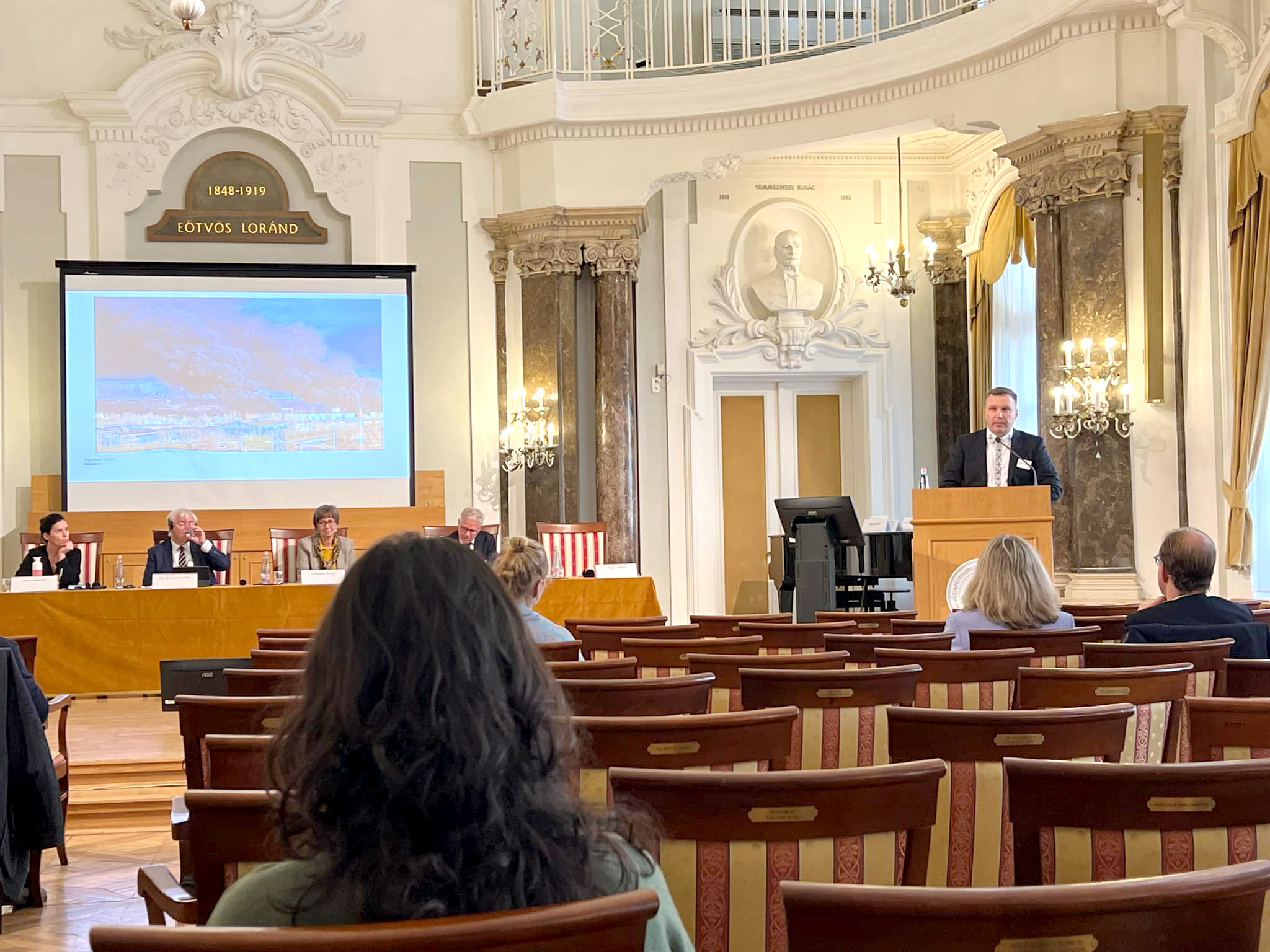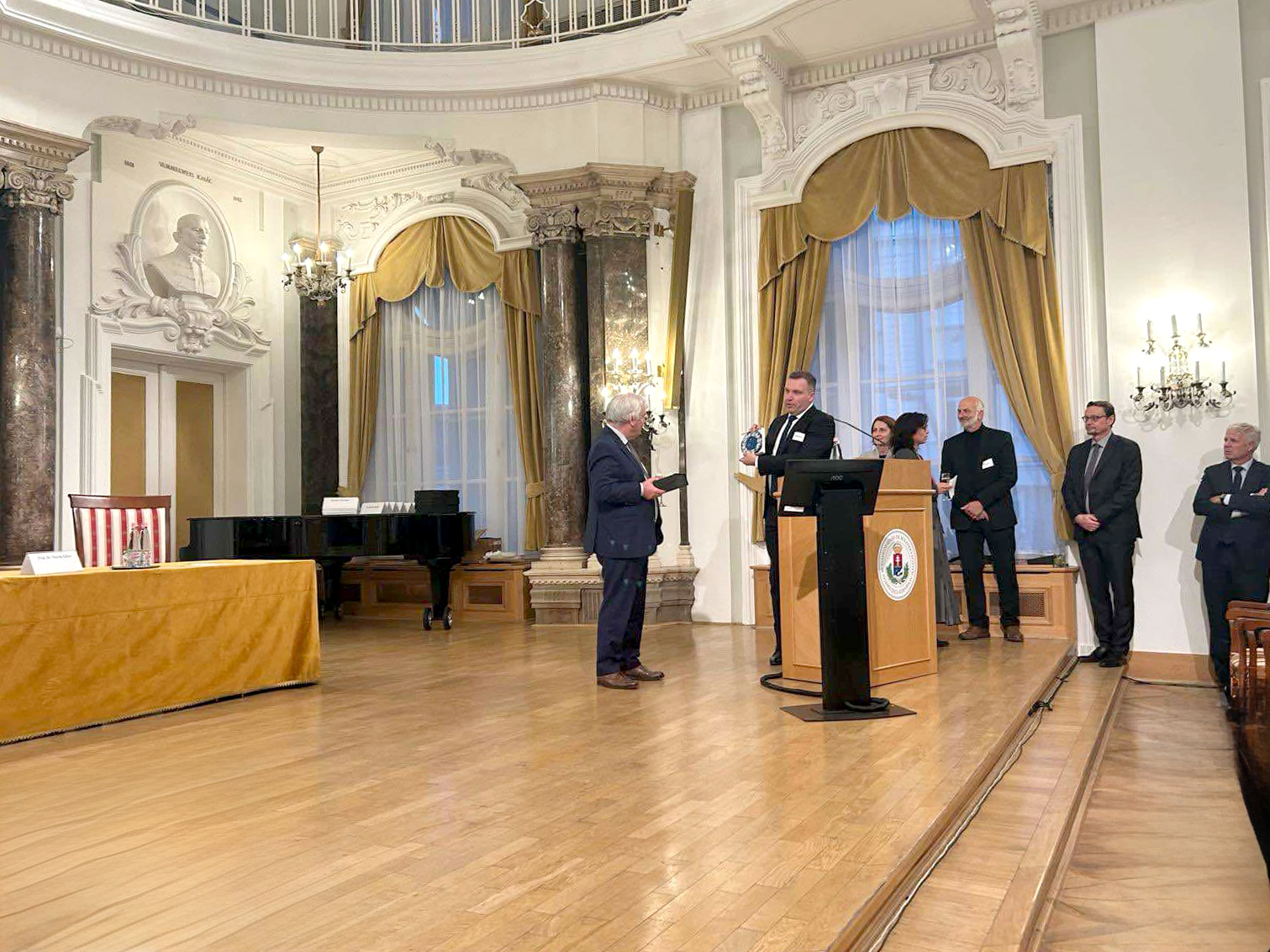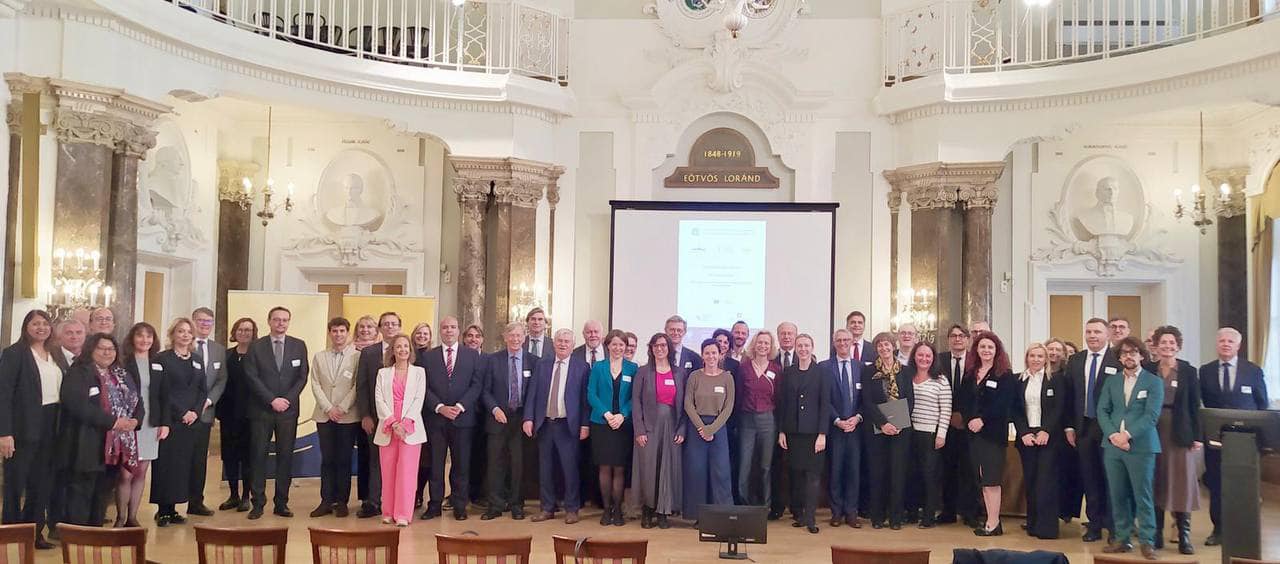Contact center of the Ukrainian Judiciary 044 207-35-46

Russia's full-scale invasion of Ukraine threatens not only the lives of millions of Ukrainians, but also their right to a safe and healthy environment. Since the beginning of the full-scale war, Russian troops have fired about 10,000 missiles at Ukraine. Shelling, bombardment, pollution of soil and water systems with oil products and other criminal acts of the occupying power have had a catastrophic impact on the environment. Some ecosystems in Ukraine are now under the threat of complete destruction, and some of the damage caused to the environment as a result of Russia's military aggression is irreparable.
This was stated by Vitalii Urkevych, Secretary of the Grand Chamber of the Supreme Court, during the annual conference of the EU Forum of Judges on the Environment (EUFJE) ‘’Human Rights Approach to the Protection of the Environment and Future Generations‘’.
The Secretary of the Grand Chamber of the Supreme Court informed the European audience that the fires caused by Russian shelling have already damaged more than 100 thousand hectares of natural ecosystems in Ukraine. The Russian aggression has devastated the territories of Ukraine that are part of the Emerald Network and protected by the Convention on the Conservation of European Wildlife and Natural Habitats (Bern Convention). A huge number of forest fires have been recorded in the Chornobyl Exclusion Zone, which threatens to spread radioactive substances in the air. The situation is also dire in the Kherson region, where fires have engulfed more than 10,000 hectares of forest.

The explosion of the Kakhovka hydroelectric power station by Russian occupation forces in June last year resulted in significant human casualties and environmental disaster: the death of many plants and animals, devastation of river and coastal ecosystems, and significant desalination of the northwestern part of the Black Sea. As Vitalii Urkevych noted, the extent of the environmental damage will be fully established only after the de-occupation of southern Ukraine. Undoubtedly, this will affect future generations.
‘As we can see, the environment has suffered greatly as a result of Russian aggression. Ukrainians do not have access to a safe environment for life and health, the right to which is guaranteed in Article 50 of the Constitution of Ukraine,’ the speaker said.

This article of the Basic Law of Ukraine also guarantees the right to compensation for damage caused by a violation of the right to a safe environment for life and health. Similarly, the Law of Ukraine ‘On Environmental Protection’ proclaims one of the basic principles of environmental protection - compensation for damage caused by violations of environmental legislation. This raises the question of how to ensure that Russia is held accountable for its war crimes against the environment.
National courts, in particular the Supreme Court, are considering claims against Russia for damages caused by the Russian aggression against Ukraine. According to Vitalii Urkevych, Ukrainian courts take into account that the aggressor state does not enjoy judicial immunity for the consideration of such cases by Ukrainian courts, as the armed aggression of a foreign state in another country goes beyond the sovereign rights of the aggressor state.

Both the 1972 European Convention on the Immunity of States and the 2004 UN Convention on Jurisdictional Immunities of States and Their Property stipulate that a state is not entitled to invoke judicial immunity in cases involving damage to health, life and property if such damage is caused in whole or in part in the territory of the forum state and if the person who caused the damage was in the territory of the forum state at the time.
‘The legitimate purpose of applying judicial immunity is to maintain good relations between countries. However, the armed aggression launched by Russia against Ukraine back in 2014 violates the fundamental principles and norms of international law and contradicts the purpose of judicial immunity,' the Secretary of the SC Grand Chamber stressed. He added that the legal community of Ukraine is working to find ways to resolve the issue of the possibility of ignoring the judicial immunity of the aggressor state, as judicial immunity should not be a way to abuse it to avoid prosecution for war crimes.
The presentation by Vitalii Urkevych is available in English at https://court.gov.ua/storage/portal/supreme/prezentacii_2024/The_right_to_a_safe_environment_in_times_of_war_in_Ukraine_Budapest_19_10_2024.pdf.
